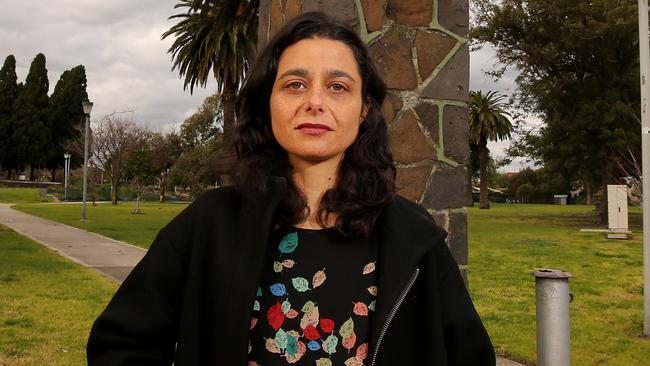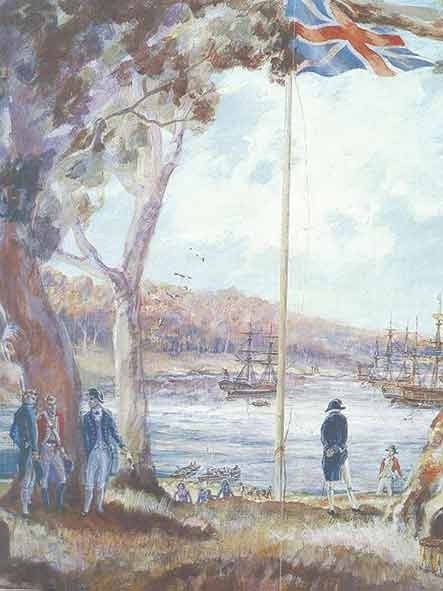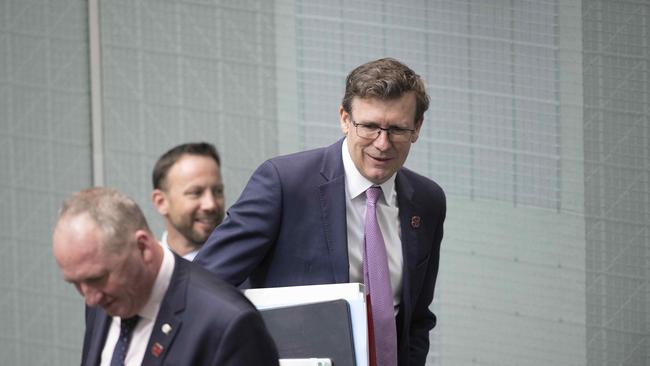Education experts slam indigenous topics push in new national curriculum
Exclusive analysis reveals proposed education reforms may “brainwash” students against democracy.
Education
Don't miss out on the headlines from Education. Followed categories will be added to My News.
Australia’s new proposed national curriculum has been given a failing grade by educators and experts who have slammed radical changes that paint a false picture of the country’s settlement, remove all references to Christianity and “brainwash” students into becoming political activists.
An analysis of the changes by Dr Bella D’Abrera, Director of the Foundations of Western Civilisation Program at the Institute for Public Affairs, found a radical re-imagining of Australian history and culture that would put so much emphasis on indigenous culture as to make the curriculum “monocultural.”

For example, where the current curriculum reads, “Aboriginal and Torres Strait Islander Peoples’ family and kinship structures are strong and sophisticated,” the proposed curriculum goes much further.
“First Nations Australians have sophisticated political, economic, and social organisation systems, which include family and kinship structures, laws, traditions, customs, land tenure systems and protocols for strong governance and authority,” the new curriculum, which was publicly released on Thursday, reads.
“Indigenous and Torres-Strait Islander Histories are already generously embedded in all learning areas of the national curriculum. These proposals radically expand the teaching of indigenous subjects into every single subject,” said Dr D’Abrera.
“Australian children will be taught the historical lie that Australia was invaded by the British. Students will also be fed the discredited ‘Dark Emu’ version of history, which says that indigenous people had sophisticated political, economic and social organisation systems.”
“Under these proposals the national curriculum would be monocultural,” she said.
The analysis found similarly radical changes in other areas.
In Year 4 History, for example, studies of stories of the First Fleet are to be replaced by “the causes for the establishment of the first British colony in Australia in 1788.”
And a call to study world navigators and explorers is proposed to be replaced with the study of “the significance of trade to First Nations People of Australia, including trade with groups outside Australia”.

“These radical proposals have completely removed all references to Christianity, Ancient Greece and the freedoms given to us through the values and institutions of Western Civilisation,” said Dr D’Abrera.
According to Dr D’Abrera, the proposed revisions are so radical that they could undermine Australian democracy.
“The changes to civics and citizenships in Year 8 removes freedoms that enable participation in Australian democracy, including freedom of speech, association and religion, and replaces them with how Australian citizens can participate in democracy’ through the ‘use of lobby groups’, ‘standing as an independent’ and ‘direct action’.”
“This is giving license for children to unlearn the freedoms of our democracy and brainwash them into political activists.
“The federal government ought to reject out of hand these radical changes to the national curriculum which would accelerate the decline in standards of Australian students’ literacy and numeracy,” Dr D’Abrera said.
Educator Dr Kevin Donnelly, senior research fellow at the Australian Catholic University and author of a number of books, was similarly scathing.
“It’s irrelevant whether Liberal or Labor governments are in power. Such is the dominance of the bureaucrats in control that Australian classrooms are once again facing a politically correct, dumbed down, substandard curriculum,” he said. “Dracula is in charge of the blood bank.”
And Dr Jennifer Buckingham, Director of Strategy and Senior Research Fellow at MultiLit, said, “If (federal education minister) Alan Tudge wants to turn around Australia’s educational performance, improving literacy will be a key driver.
“The proposed revised Australian Curriculum will not help achieve that goal because it still promotes the ineffective whole language teaching approaches that have led to large numbers of children finishing primary school unable to read,” she said.
The proposed changes, which are open for feedback, will eventually be integrated into the NSW curriculum should they be signed off.

A spokesman for the NSW Education Standards Authority said the state “takes an ‘adopt and adapt’ approach to incorporating Australian Curriculum content into NSW syllabuses.”
“NSW will continue to revise our syllabuses for Kindergarten through to Year 10 in accordance with the objectives and time frames for the NSW Curriculum Reform program,” the spokesman said.
NSW Minister for Education Sarah Mitchell said, “NSW will continue to work with Commonwealth in developing the Australian Curriculum, and we will use this consultation period to provide feedback.”
“Our explicit approach to the NSW curriculum will mean that evidence-based practices, like teaching reading using phonics, feature prominently as will learning maths basics before progressing to more complex problem-solving.”
“I’m looking forward to working with the Commonwealth and other jurisdictions on the Australian Curriculum and will always implement the strongest evidence-based curriculum here in NSW.”
Mr Tudge told The Daily Telegraph he wants a decluttered curriculum.
“Having a strong curriculum will be key to returning Australia to the top group of education nations,” he said.
“Before I sign off on any changes later this year, I will be looking for a decluttered curriculum, evidence-based practices and higher standards to reverse our decline in recent decades.
“Teachers, principals and parents should take the opportunity to comment on the proposals put forward by ACARA today.”
Aboriginal and Torres Strait Islander Histories Cross Curriculum Priority
Current Curriculum:
Aboriginal and Torres Strait Islander communities maintain a special connection to and responsibility for Country/Place.
Proposed Curriculum:
The occupation and colonisation of Australia by the British, under the now overturned doctrine of terra nullius, were experienced by First Nations Australians as an invasion that denied their occupation of, and connection to, Country/Place.
History Year 3
Current Curriculum:
How the community has changed and remained the same over time and the role that people of diverse backgrounds have played in the development and character of the local community
Proposed Curriculum:
The importance to identity and diversity of significant days and weeks celebrated or commemorated in Australia, including Australia Day, ANZAC Day and National Sorry Day, and those from around the world that are observed by a range of people in Australia
History Year 4
Current Curriculum:
The journey(s) of AT LEAST ONE world navigator, explorer or trader up to the late eighteenth century, including their contacts with other societies and any impacts
Proposed Curriculum:
The significance of trade to First Nations People of Australia, including trade with groups outside Australia
Civics and Citizenship Years 7 and 8
Current Curriculum:
How Australia is a secular nation and a multi-faith society with a Christian heritage
Proposed Curriculum:
Gow Australia is a culturally diverse, multi-faith, secular and pluralistic society with diverse communities, such as the distinct communities of First Nations Australians.
Current Curriculum:
The freedoms that enable active participation in Australia’s democracy within the bounds of law, including freedom of speech, association, assembly, religion and movement
Proposed Curriculum:
How Australian citizens can participate in democracy, including voting in elections, contact with their elected representatives, joining political parties and standing as an independent, use of lobby groups, and direct action.
English Year 7
Current Curriculum:
Identify and explore ideas and viewpoints about events, issues and characters represented in texts drawn from different historical, social and cultural contexts.
Proposed Curriculum:
Identify and explore ideas, perspectives, characters, events, and issues represented in literary texts drawn from different historical, social and cultural contexts and created by First Nations Australian and non – First Nations Australian authors, and authors from around the world.





